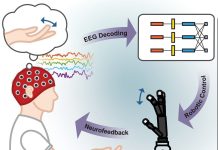
Memory problems can be an early sign of cognitive impairment, a condition that affects your thinking and learning abilities.
Sometimes, it can lead to serious diseases like Alzheimer’s. But what if we could spot these problems before they become serious? This is what scientists are trying to figure out.
A scientist named Ellen Grober and her team have been studying memory problems. They came up with a simple test that could predict who might develop cognitive impairment in the future.
This test could help identify people who might need extra help, even before they start showing serious problems with their memory or thinking.
In their study, Grober’s team worked with 969 people. These people were about 69 years old on average and had no memory or thinking problems at the beginning of the study.
They were given a memory test and then followed for up to 10 years.
The test had two parts. In the first part, people were shown four cards, each with four different items drawn on them.
They were then asked to identify an item belonging to a specific category. For example, if the category was “fruit,” they would have to point out “grapes.”
In the second part, people were asked to remember the items they just saw. If they couldn’t remember, they were given a hint about the category.
This part of the test was designed to measure how well their memory storage works.
The people in the study were divided into five groups based on their test scores. People with no memory problems were in stage zero.
People with some difficulty retrieving memories but could remember with cues were in stages one and two. These stages can indicate early signs of dementia 5 to 8 years in advance.
People who could not remember all the items even after being given cues were in stages three and four. These stages can signal dementia 1 to 3 years in advance.
Almost half of the people in the study had no memory problems, while the rest had varying degrees of memory retrieval or storage issues. During the study, 234 people developed cognitive impairment.
The researchers found that compared to people in stage zero, those in stages one and two were twice as likely to develop cognitive impairment. People in stages three and four were three times as likely.
The scientists believe that this simple test could be a valuable tool to identify people who are at risk of developing cognitive impairment.
While this study’s results are promising, more research is needed. The participants in this study were mostly white and well-educated, so the findings might not apply to everyone.
Grober said that they plan to conduct more studies with larger and more diverse groups of people.
In the end, this test could potentially make a big difference by catching memory problems early.
By spotting these problems sooner, doctors could start treatments earlier and potentially slow down the progress of diseases like Alzheimer’s.
If you care about health, please read studies about chronic itch linked to heart disease, and the best time to take vitamins to prevent heart disease.
For more information about brain health, please see recent studies that cataract removal may reduce the dementia risk by one-third, and results showing these antioxidants could help reduce the risk of dementia.
The study was published in Neurology.
Copyright © 2023 Knowridge Science Report. All rights reserved.



